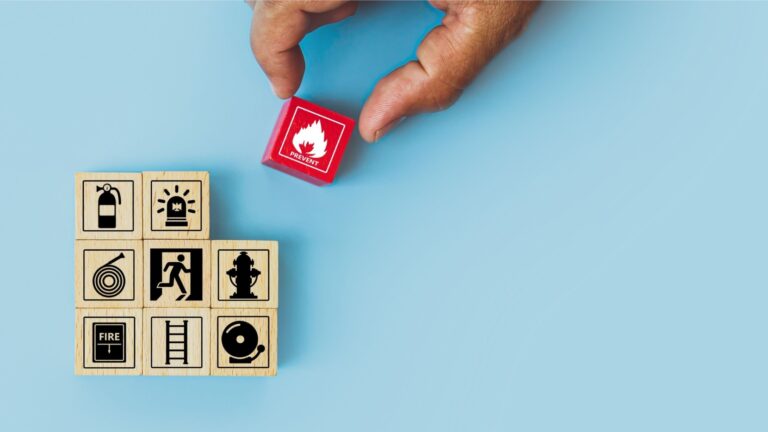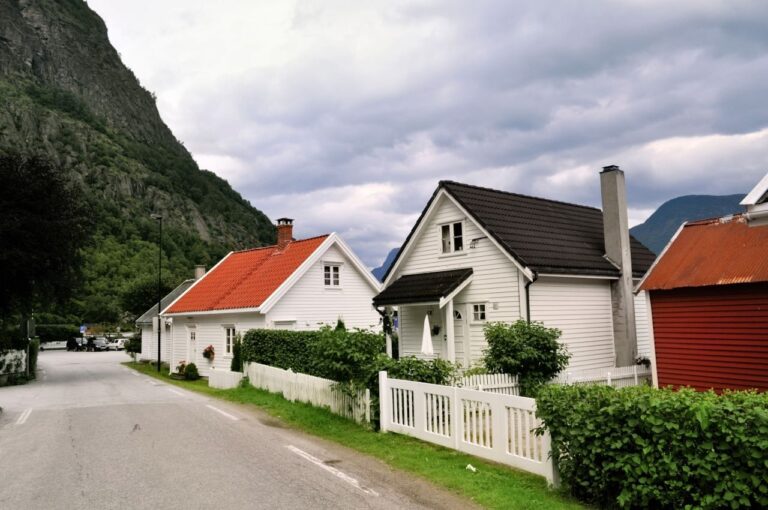Moving into your new Norwegian home is exciting, but understanding fire safety measures is crucial to ensuring your family’s safety and peace of mind. Here's what you need to know about fire safety in a Norwegian home.
After a long and arduous search, the excitement of finally moving into your new home in Norway is palpable. The picturesque landscapes, cozy interiors, and the promise of new adventures make this moment truly special.

Amidst the joy of settling in, one crucial aspect that often goes overlooked is fire safety. Ensuring your home is protected from potential fire hazards is essential for your well-being and peace of mind.
Note: In an emergency, contact the fire service on 110
Fire safety involves several precautions aimed at preventing fires that could lead to injury, death, or property damage. It also includes measures to alert occupants of an uncontrolled fire, enabling them to evacuate safely and reduce potential damage.
Many fire-related fatalities in homes result from smoke poisoning, highlighting the importance of having proper knowledge and fire protection equipment.
Mandatory Fire Safety Requirements in Norway
To ensure fire safety, every Norwegian home must have a minimum of one approved smoke detector and one fire extinguisher.
The property owner is responsible for installing these devices, and it is highly recommended to have them on each floor of multi-level homes.
Fire extinguishers are mandatory for all properties and can be either a fire hose, capable of reaching all areas of the property, or a portable extinguisher with a minimum effect of 21A.
Read more: Emergency Services in Norway
In buildings with multiple apartments, a common area fire hose is acceptable. The equipment should be visible, easily accessible, and regularly maintained, with all residents familiarized with its use.
Smoke detectors must also be installed in every property. For larger homes or those with multiple levels, multiple detectors connected in series are advisable to ensure simultaneous alarms.

Placement is crucial—detectors should be near stairwells, escape routes, and at the highest points of ceilings, at least 50 centimeters from walls. The alarms must be audible in all bedrooms, even with doors closed.
Regular Testing is Critical
While the property owner provides the smoke detectors, residents are responsible for testing them monthly, particularly after vacations, and for changing the batteries annually or when the detector signals a low battery. This simple monthly check can be a lifesaver.
In the unfortunate event of a fire, if it is small and manageable, adults and older children may attempt to extinguish it using a fire hose or extinguisher. However, if the fire seems threatening, prioritize evacuation and call the fire department at 110, clearly stating the address.
Regular fire drills with your family are highly recommended. If you live in a building with several properties, organizing drills with your neighbors can be beneficial.
Know all escape routes, agree on alerting measures, and practice these during drills. Ensure your children understand fire prevention and evacuation procedures.
Fire Prevention Measures in Norway
Preventing fires is just as important as knowing how to react to them. Avoid overloading electrical systems, especially in winter when heating demands increase. Turn off appliances when not in use rather than leaving them on standby.
Always extinguish candles before leaving a room and refrain from smoking indoors. Regularly clean your stove, oven, and kitchen ventilator to prevent grease buildup, and avoid cooking when under the influence of alcohol or drugs.
Check fuse boxes for burn marks or excessive heat, and keep lighters, matches, and candles out of children’s reach. Fireplaces and chimneys should be cleaned regularly, typically every four years by the fire department.
If fuses are hot or frequently blow, your system may be overloaded. Reduce electricity use or distribute it across more circuits.
Electrical heaters should be directly connected to sockets, not extension cords, and must not be covered. Avoid running dryers and washing machines overnight or when you’re not home. Movable heaters should be supervised when in use.
Flammable liquids should be stored away from ignition sources, and stairways and exits must remain unobstructed. During summer, be cautious with grills on decks, as they are flammable.
For pet owners, regularly check electrical cords for signs of chewing or damage. The property owner must ensure the electrical system meets regulations and can handle the load.
If faults are suspected, disconnect relevant equipment and contact a registered electrician. Tenants should report any electrical issues to the property owner immediately.
By taking these steps, you can ensure your new home in Norway is safe from fire hazards, allowing you to enjoy your new beginning with peace of mind. Welcome to your new home, and stay safe!

